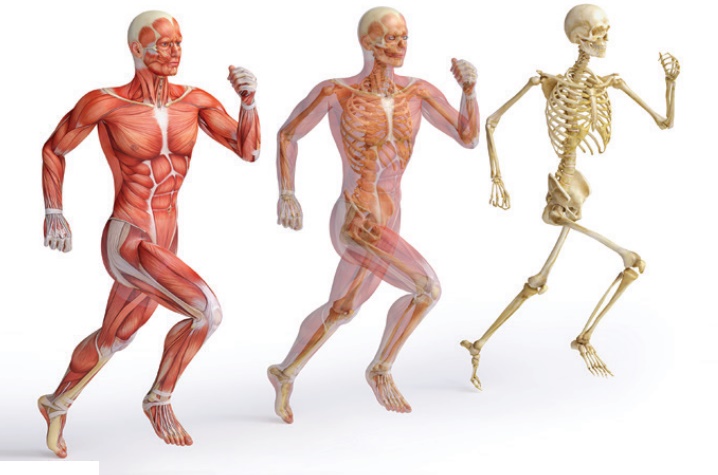If you’ve signed up for an online anatomy and physiology class, congratulations! You’re about to embark on an incredible journey into the human body. These classes can be challenging, but with the right strategies, you’ll not only survive but thrive. So, let’s dive into some tips that’ll set you up for success when you learn anatomy and physiology online.
Get Organized
Create a Dedicated Study Space
First things first, let’s talk about your environment. Find a quiet, comfortable place where you can study without distractions. This space should be well-lit, and free from noise and interruptions. Think of it as your personal lab where all the magic happens.
Set a Schedule
Consistency is key. Set aside specific times each week for studying. Treat these times as non-negotiable appointments with your education. By creating a routine, you’ll find it easier to keep up with your coursework and avoid last-minute cramming.
Use a Planner or Digital Calendar
Anatomy and physiology courses are packed with information and deadlines. Keep track of all your assignments, quizzes, and exams using a planner or digital calendar. This will help you stay on top of your work and manage your time effectively.
Engage with the Material
Active Learning Techniques
Passive reading won’t cut it in these classes. Engage with the material actively. Take notes, draw diagrams, and explain concepts out loud to yourself. Teaching the material to someone else, even if it’s just your cat, can also be incredibly helpful.
Utilize Multimedia Resources
Don’t just stick to your textbook. There are tons of online resources that can help you understand the material better. Check out educational videos, podcasts, and interactive simulations. Sometimes, seeing a concept in a different format can make it click.
Participate in Online Discussions
Don’t be a ghost in your online class. Participate in discussion boards and group chats. Ask questions, share insights, and help your classmates. Engaging with your peers and instructors will deepen your understanding and make the class more enjoyable.
Master the Content
Break Down the Syllabus
Anatomy and physiology cover a lot of ground. Break down the syllabus into manageable chunks. Focus on one system at a time (e.g., skeletal, muscular, cardiovascular) and master it before moving on to the next. This approach makes the material less overwhelming.
Flashcards and Mnemonics
Flashcards are your best friend. Use them to memorize key terms and concepts. Mnemonics are also great for remembering complex information. For example, to remember the cranial nerves, you might use a silly sentence like, “Oh, Oh, Oh, To Touch And Feel Very Green Vegetables, AH!”
Practice Quizzes
Test yourself regularly with practice quizzes. Many online courses provide these, but you can also find additional quizzes and practice tests online. This will help you identify areas where you need more review and reinforce your knowledge.
Stay Healthy and Balanced
Take Regular Breaks
Studying for long periods without breaks can lead to burnout. Use the Pomodoro Technique: study for 25 minutes, then take a 5-minute break. After four cycles, take a longer break. This helps keep your brain fresh and focused.
Exercise and Nutrition
Don’t neglect your body while you’re learning about it! Regular exercise and a healthy diet are crucial for maintaining energy and concentration. Take short walks, do some stretching, and eat nutritious snacks to fuel your brain.
Get Enough Sleep
Pulling all-nighters might seem like a good idea, but sleep is essential for memory consolidation. Make sure you’re getting enough rest each night. Aim for 7-9 hours of quality sleep to keep your mind sharp.
Utilize Available Resources
Reach Out to Instructors
Your instructors are there to help you. Don’t hesitate to reach out with questions or concerns. Attend virtual office hours and ask for clarification on topics you find challenging. They can provide valuable insights and additional resources.
Study Groups
Forming a study group with your classmates can be incredibly beneficial. You can quiz each other, discuss difficult concepts, and share study tips. Plus, it’s nice to have a support system of people who are going through the same experience.
Online Tutoring Services
If you’re struggling with certain topics, consider using online tutoring services. Many schools offer free or discounted tutoring for students. A tutor can provide personalized help and explain concepts in a way that makes sense to you.
Practical Tips for Exams
Review Regularly
Don’t wait until the night before the exam to review. Make a habit of regular review sessions. This will help reinforce your learning and make exam preparation less stressful.
Understand, Don’t Memorize
While memorization is necessary for some aspects of anatomy and physiology, understanding the underlying concepts is crucial. Focus on how different systems interact and why things work the way they do. This deeper understanding will help you tackle complex exam questions.
Practice, Practice, Practice
The more you practice, the better prepared you’ll be. Use old exams, practice tests, and online quizzes to test your knowledge. This not only helps with retention but also gets you used to the format of the questions you’ll encounter.
Conclusion
There you have it – a roadmap to success in your online anatomy and physiology class! Remember, it’s all about staying organized, engaging with the material, and taking care of yourself. With these tips, you’ll be well on your way to acing your course. Now, go ahead and conquer that syllabus, one system at a time.



